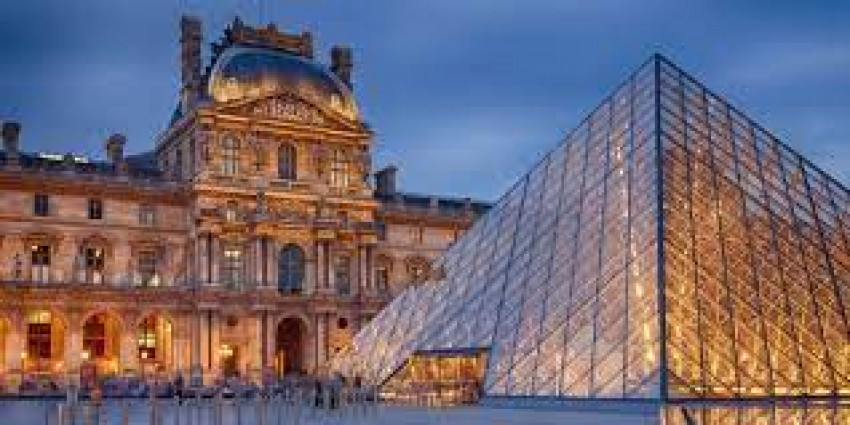
Museums Travel Guide
Museums are a treasure trove of history, art, and culture. They play a crucial role in preserving the past and educating future generations. Museums in various countries around the world showcase unique artifacts, artworks, and exhibits that offer a glimpse into different eras and civilizations. Museums are famous for their ability to transport visitors to another time and place, making them popular tourist attractions for history buffs, art enthusiasts, and curious minds alike.Top Attractions in Museums
1. The Louvre Museum in Paris 2. The British Museum in London 3. The Metropolitan Museum of Art in New York City 4. The Vatican Museums in Vatican City 5. The Hermitage Museum in St. PetersburgMuseums is Famous for
Exhibiting priceless artifacts and artworks that offer insights into human history and creativity.Top Attractions in Museums
- Exploring ancient civilizations - Admiring renowned artworks - Learning about different cultures - Discovering scientific innovations - Interacting with historical artifactsWhat's Great about Travelling to Museums?
- History enthusiasts - Art lovers - Students - Families - Curious mindsWhat's Not So Great about Travelling to Museums?
- Those who prefer outdoor activities - Individuals with limited interest in history or artTravel Tips for Museums
- Check museum opening hours - Purchase tickets in advance - Respect the exhibits and follow museum rules - Use audio guides for a more enriching experienceImportant Museums trip information
- Ideal Duration: Spend at least a full day in each major museum.
- Best Time to Visit: Avoid peak tourist seasons for a more enjoyable experience.
- Nearby Airports and Railway Stations: Choose airports and stations with convenient access to museums.
FAQ's on Museums
Q1: What is the best time to visit Museums?
The best time to visit Museums is typically during the shoulder seasons of spring and fall when the weather is pleasant, and tourist crowds are smaller. Museums often have special exhibitions and events during these times. However, some museums may be more crowded during holidays and peak summer months. It's advisable to check the museum's website for specific event schedules and plan your visit accordingly.
Q2: Do I need a visa to travel to Museums?
As Museums are not a specific country but individual institutions in various locations, there are no visa requirements to visit museums. However, if you are traveling to a different country to visit museums, you will need to check the visa requirements of that particular country.
Q3: What are the must-visit attractions in Museums?
Some of the must-visit attractions in Museums include iconic pieces of art, historical artifacts, interactive exhibits, and unique collections. Popular museums like the Louvre in Paris, the British Museum in London, and the Metropolitan Museum of Art in New York are renowned for their impressive collections. Don't miss out on famous artworks like the Mona Lisa, ancient Egyptian artifacts, and contemporary installations.
Q4: Is Museums a safe place to travel?
Museums are generally safe places to visit, as they are dedicated to preserving and showcasing art and culture. However, it's always important to be cautious of your belongings and follow any safety guidelines provided by the museum staff. Be aware of your surroundings and avoid touching or damaging any exhibits.
Q5: What is the local currency in Museums and can I use credit cards?
As Museums are not a specific country, there is no local currency. However, most museums around the world accept major credit cards for ticket purchases, souvenirs, and other transactions. It's recommended to carry some cash in the local currency if you plan to visit smaller or independent museums.
Q6: What is the local cuisine like in Museums?
Museums do not have a specific local cuisine, but many museums have on-site cafes or restaurants that offer a variety of dishes to cater to visitors. You can expect to find a range of options from light snacks to full meals, often with a cultural or artistic theme. Some museums even host food events or themed dining experiences.
Q7: What transportation options are available in Museums?
Transportation options to museums vary depending on their location. In urban areas, you can typically access museums using public transportation like buses, subways, or taxis. Some museums may also have parking facilities for those driving. In tourist destinations, you might find shuttle services or guided tours that include transportation to multiple museums.
Q8: Are there any cultural norms or etiquette I should be aware of when visiting Museums?
When visiting museums, it's important to respect the rules and regulations set by the institution. This includes not touching the exhibits unless permitted, refraining from flash photography, and keeping noise levels to a minimum. Be mindful of other visitors, follow any dress codes if applicable, and engage with the art and artifacts respectfully. Remember that museums are spaces for learning and appreciation.
Q9: I am a travel agent. How can I buy travel leads of Museums?
Register yourself as a travel agent at agents.tripclap.com and then you can buy travel leads to Museums once your account is approved. For more details contact our support team at +91-8069186564 or support@tripclap.com
